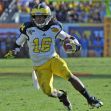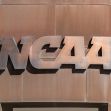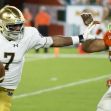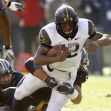The National Collegiate Athletics Association (NCAA) and its five power conferences have reached a settlement agreement, marking a significant shift in the landscape of college sports. The agreement, announced on Thursday (May 24), signifies a momentous departure from the traditional model of amateurism in collegiate athletics, allowing schools to directly compensate student-athletes for the first time in over a century.
Per ESPN, under the terms of the settlement the NCAA will pay over $2.7 billion in damages to past and current athletes over the course of ten years, resolving three federal antitrust cases that have loomed over the collegiate sports arena. Additionally, a revenue-sharing plan has been established, enabling each school to distribute approximately $20 million annually among its athletes.
The litigation, which includes the cases House v. NCAA, Hubbard v. NCAA, and Carter v. NCAA, has been a focal point in the ongoing debate surrounding athlete compensation and the enforcement of amateurism rules within collegiate athletics. These cases challenged the NCAA's restrictions on athlete compensation and sought redress for alleged antitrust violations.
Notably, the settlement class encompasses all Division I athletes dating back to 2016, granting them eligibility to receive a share of the settlement funds. In exchange, athletes are required to forego any further litigation against the NCAA for potential antitrust violations and drop their complaints in the aforementioned cases, thereby solidifying the terms of the agreement.
While the settlement represents a significant step forward in addressing longstanding grievances regarding athlete compensation and amateurism, it does not fully resolve all legal challenges facing collegiate sports. Questions regarding the employment status of athletes and their ability to collectively bargain remain unresolved.
In response to the settlement, NCAA President Charlie Baker and the commissioners of the five power conferences issued a joint statement, heralding the agreement as a transformative moment in the evolution of college sports. They emphasized the importance of collaboration between stakeholders in implementing the terms of the settlement and reiterated their commitment to ensuring equitable opportunities for student-athletes across all divisions.






